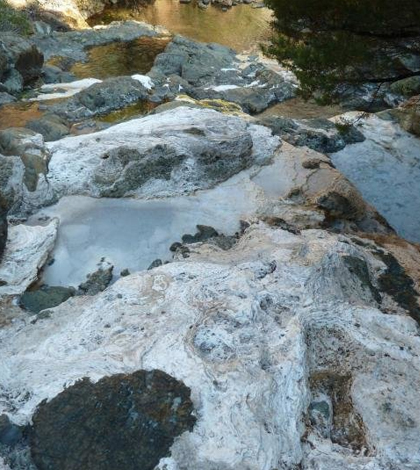Methane-Producing Microbes Discovered In California Freshwater Streams

The Cedars is a small isolated set of springs in Sonoma County, California. (Credit: Lukas Kohl)
For the first time, researchers from Memorial University of Newfoundland have found methane-producing microbes in a set of freshwater springs called The Cedars in Sonoma County, California.
The springs are some of the few examples of serpentinization that are accessible on land. Serpentinization is a process common on the ocean floor where water reacts with rock to produce a green stone, releasing methane, hydrogen and heat as byproducts.
Scientists took water samples from the springs and compared methane levels of samples where the microbes were destroyed versus ones containing live microbes. They found that, not only were the methane levels higher in samples with live microbes, they were about 650 percent higher than in samples where microbes had been destroyed.
Scientists found evidence that microbes are contributing to the methane in the springs as well. If the microbes are using carbon dioxide to produce it, researchers believe this could undermine efforts to sequester carbon in rocks like those found in The Cedars.
Top image: The Cedars is a small isolated set of springs in Sonoma County, California. (Credit: Lukas Kohl)





0 comments